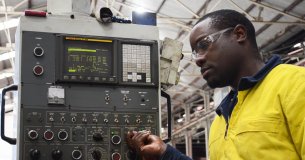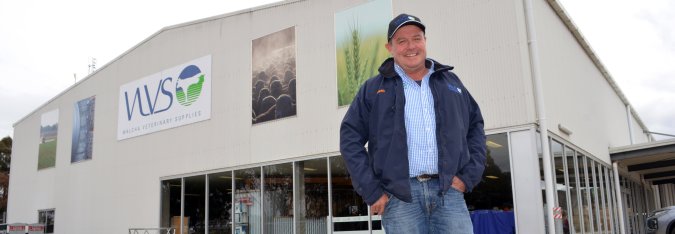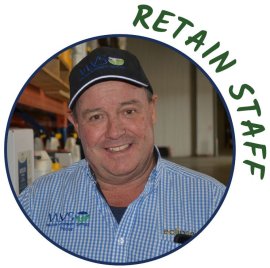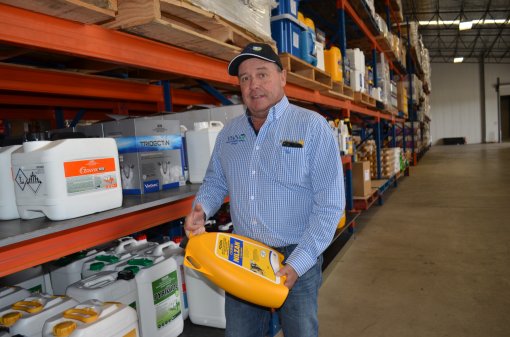-
Featured Items
-
Featured Resources
 Funding & Grants
Don't miss out on funding opportunities. Stay informed with our up to date online listings and email notifications.
Read More
Funding & Grants
Don't miss out on funding opportunities. Stay informed with our up to date online listings and email notifications.
Read More
 Skilled Migration
Our services help both applicants and employers, to learn more, develop plans, submit applications, and settle in.
Read More
Skilled Migration
Our services help both applicants and employers, to learn more, develop plans, submit applications, and settle in.
Read More
 Research and Analysis
Good research and analysis makes the case. How can our resources and services help your project or application?
Read More
Research and Analysis
Good research and analysis makes the case. How can our resources and services help your project or application?
Read More
 Information & Data Resources
With resources like REMPLAN, Regional Knowledge Base, and decades of data, discover how we can help your project.
Read More
Information & Data Resources
With resources like REMPLAN, Regional Knowledge Base, and decades of data, discover how we can help your project.
Read More
-
Stay InformedSubscribe to one or more of our regular email subscriptions, to be kept up to date on news and funding opportunities for the region
-
-
Our Region
- Our Region
- Regional Plan
- Regional Data
- Current Regional Issues
- Population Migration Analysis for 2016-21
- Job Vacancies Continue at All-Time High
- National Debt - What it Means for Our Economy?
- The True Value of Home Solar
- The Economic Impacts of Local Government Amalgamations
- State of the Regions Report 2014-15
- Antifragility - A different take on regional economic development
- Biohubs - Collaborative Waste Management
- Attracting New Residents
- Socio-Economic Impacts of the Murray Darling Basin Plan
- Murray Darling Basin Water Recovery
- Growing Businesses
- The Northern Inland Economy
- Geographical Overview
- Major Industry Sections
- Our Services
- Grants and Funding
-
Skilled Migration
- Skilled Migration
- Skilled Employer Sponsored Regional Visa
- Skilled Work Regional Visa (subclass 491)
- Temporary Seasonal Workers
- Designated Area Migration Agreement (DAMA)
- Helpful Information for Visa Holders
- Information for Employers
- Case Studies
- Payment Details
- Advice & Further Information
- Contact Details
- News & Events
-
Our Projects
- Our Projects
- Current Projects
- Skilled Migration
- Wool Works - Wool Training Schools
- Metal Works - Welding and Fabrication Schools
- Come On Inland
- Stories of Resilience
- Alt Brothers Beekeeping - Glen Innes
- Carelle's Toy Store - Glen Innes
- Greenhill Orchards - Arding
- Gwydir Meats - Warialda
- Kaputar Motors - Narrabri
- Moonbi General Store - Moonbi
- Sandstock - Tingha
- Sherelle Fashions - Tenterfield
- Sleepy Merino - Inverell
- Tenterfield Chamber of Toursim, Industry and Business - Tenterfeild
- The Welders Dog - Armidale
- Walcha Veterinary Supplies - Walcha
- AGCAP - Agribusiness Careers & Professions
- Northern Inland Regional Investment Profile
- Past Projects
- Digital Economy Strategy
- Business Growth Project
- Go Digital
- How to Start an Online Business
- Create Your Website Using Squarespace
- How to Edit Your Squarespace Site - Part 1
- How to Edit Your Squarespace Site Part 2
- Add a Shop to Your Squarespace Site
- Start a Blog and Find out What Customers are Searching
- 14 Tips For a Better Blog Post
- Which Social Media Platforms are Best for Your Business
- How to Use Facebook Effectively For Your Business – Part 1
- How to Use Facebook Effectively For Your Business – Part 2
- Instagram Tips for Business
- Catching Up, More Instagram & Dealing with Haters
- Getting Started with Twitter for Business
- Social Media Scheduling Tools
- How to Start an Etsy Shop – Part 1 – Research
- How to Start an Etsy Shop – Part 2 – Signup
- Online Security for Your Business
- Product Photography and Website Images: Your Guide
- 5 Tips to Improve your Productivity in your Business
- Best Online Business Resources
- How to Improve Your Communication Skills and Win More Clients
- NBN Coordinator
- Putting Power Back in the Regions
- Road Freight Study
- Town Audit Benchmarks
- Food and Wine
- Youth Survey
- Digital TV Switchover Assistance
- Northern Inland Transport Guide
- Live.Train.Work
- Northern Inland Innovation Awards
- Northern Inland Innovation Awards - 2017
- Northern Inland Innovation Awards - 2016
- Northern Inland Innovation Awards - 2015
- Northern Inland Innovation Awards - 2014
- Northern Inland Innovation Awards - 2013
- Northern Inland Innovation Awards - 2012
- Norther Inland Innovation Awards - 2011
- Prime Super Northern Inland Innovation Awards - 2010
- Prime Super Northern Inland Innovation Awards - 2009
- Northern Inland Innovation Awards - 2007
- Northern Lights Project
- NBN Smart Home
- Murray Darling Basin
- Moree Plains Business Workshops
- Namoi Investment Prospectus
- Industrial Land
- Bioenergy and Local Electricity Retailing
- Northern Inland Business Energy Assessment
- Skills for the Future
- Impacts of COVID-19 on Businesses
- Past Projects of NIRDB
- Aboriginal Employment and Enterprise in the Gunnedah Region
- Art as an Industry
- Aviation Survey
- Farm Forestry - Northern Inland Forestry Investment Group
- New England North West Film Strategy
- Northern Inland Excellence in Business Awards
- Food and Wine 2003 - 2008
- Prime Super Northern Inland Innovation Awards 2009
- Regional Business Networking Program
- Regional Leadership Course 2008
- Viticulture Strategy 2002-2003
- About Us
- Contact Us
- Other Resources
- Privacy and Legal
- Search
- Our ProjectsOur Projects
- Current ProjectsCurrent Projects
- Stories of ResilienceStories of Resilience
- Walcha Veterinary Supplies - WalchaWalcha Veterinary…
Stories of Resilience - Walcha Veterinary Supplies
Walcha
Walcha Veterinary Supplies sells a vast range of agricultural products including animal health products, spraying equipment, seed, chemical, fertiliser, shearing supplies, stock feeds, fencing products and clothing. The massive warehouse even includes a conference room for up to 80 people. This business is linked to the rural sector it supplies and has endured the tough times with it. Up to 18 people are employed by Walcha Veterinary Supplies and they are considered the most important resilience asset by the business.
“Our core business is animal health. That’s the hub of the business. We keep the animals in, we sell pasture seed and fertiliser. We have a broad range of products to do with agriculture here but our core business is the animal and animal health,” Walcha Veterinary Supplies Managing Director Peter King said.
“The business has grown dramatically. It was a very good business, started by my father, who used to sell small amounts of vaccines and animal health products (mainly drenches) out the back door of his pharmacy, here in Walcha. It grew from there and we built our current premise in 2001. That enabled our rapid growth over the last 20 years.”
Hard Times for Every Part of Town
“The drought here in Walcha seemed to start a lot earlier than other areas of the New England region. By the time we did our two and a half years, our farmers were down to core levels of stock. Probably 60 to 70 percent of animals were sold off. It annihilated people’s bank accounts and in a lot of cases, their equity, as they were borrowing to feed stock. So, things were as desperate as you can get. This drought was different to what anyone alive had seen. The psychological things, that gut feeling that we’re in trouble here was in every part of the town and district.
"Things were as desperate as you can get.
This drought was different to what
anyone alive had seen."
It rained in January 2020. I was predicting that it would take at least two to three years for any level of recovery among farmers, financially. Sheep and cattle prices escalated far quicker than anyone had predicted. The rain kept falling and the prices kept rising.”
“Anyone who kept feeding stock through the last few months of the drought deserved a bravery medal but then the stock prices basically doubled in a few months and kept going.”
“Agriculture came through Covid better than any industry I know. Everyone accepted the higher prices, coming off the drought. More people were cooking at home. It was a win-win-win for agriculture. For our business, people said while we’re at home, we’ll fix this fence or do this and they had some cash because of the value of livestock.”
“I’ve been running this business for 40 years and I’ve never seen sheep prices, cattle prices and two good seasons have married up. So, it’s a 1 in 40 year positive for our business. Everyone’s done very well out of Covid.”
“Turnover-wise, we were down about 45 percent. In terms of sales and profit, it was much worse than that. The biggest problem we had was when you sell drench and products to look after the animals. Well, once there’s a drought on, worms are minimal and you’ve got stock numbers that have dropped 70 percent.”
Keeping Staff Was Key to Recovery
“If your core business is animal health and there are very few issues or stock, you’ve basically got to stick to your guns. My staff, my team, they are my golden cows and you cannot sell the golden cow. You’ve to find the money to keep paying your staff for those obvious reasons. Once things turn around again, you need your people. It is very important to us that we look after our staff.”
"Once things turn around again you need your people.
It is very important to us that we look after our staff.
Keeping our staff was number one."
“It was because we kept our staff that we didn’t have those issues (that could have impeded our recovery). Things are slack when you’ve got people standing around pretending they’re doing something and we know they’re not. You clean up and all the rest of it. Everyone’s got smelly corners you start getting into. Well, we did that two or three times but at the end of the day, when the turn around comes, you’re there. It is hard to manage.”
“Keeping our staff was number one (through the dark times). Everyone is short-staffed and short of supplies. We’re committing to millions of dollars in stock. We try to keep well in front of the supply. We’ve had to increase our stock holding by about $1.2 million because of the shortages through every industry. It’s a calculated risk but we’ve committed to enormous amounts of stock and eventually it will go.”
The Walcha Shire was hit hard by bushfires. Walcha Veterinary Supplies experienced increased business, as farmers worked to restore fence lines and pastures. The availability of those supplies was vital for the sector’s recovery in Walcha. With over 4.5 million dollars’ worth of stock, the business has addressed supply chain issues by buying bulk, well in advance of seasonal demand. The strategy comes with risk but is necessary given supply issues associated with regional Australia’s recovery from drought, bushfires and Covid-19.
Watch Peter's Story
Related Pages
- Stories of Resilience
- Alt Brothers Beekeeping - Glen Innes
- Carelle's Toy Store - Glen Innes
- Greenhill Orchards - Arding
- Gwydir Meats - Warialda
- Kaputar Motors - Narrabri
- Moonbi General Store - Moonbi
- Sandstock - Tingha
- Sherelle Fashions - Tenterfield
- Sleepy Merino - Inverell
- Tenterfield Chamber of Toursim, Industry and Business - Tenterfeild
- The Welders Dog - Armidale
- Walcha Veterinary Supplies - Walcha







 Latest News
Latest News



